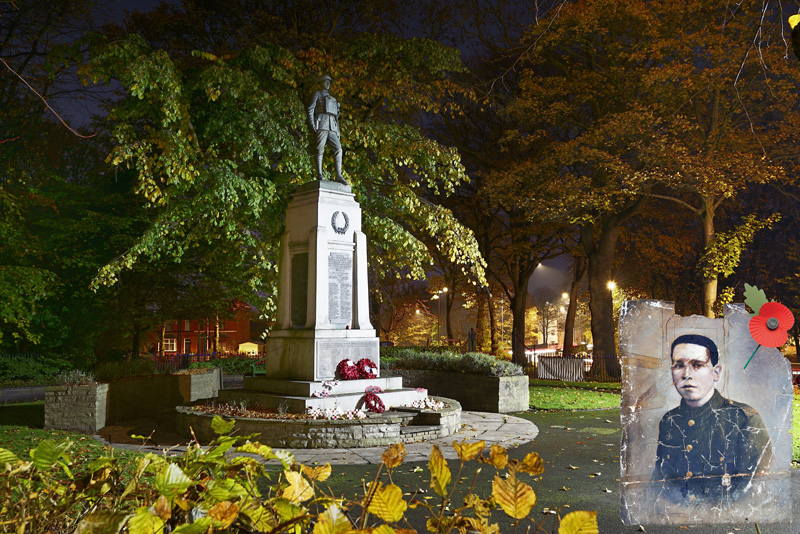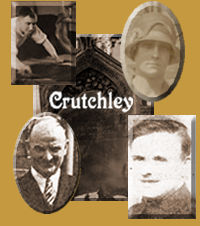
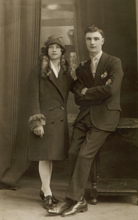
Black Country Genealogy
SOME BENNETT FAMILY HISTORY |
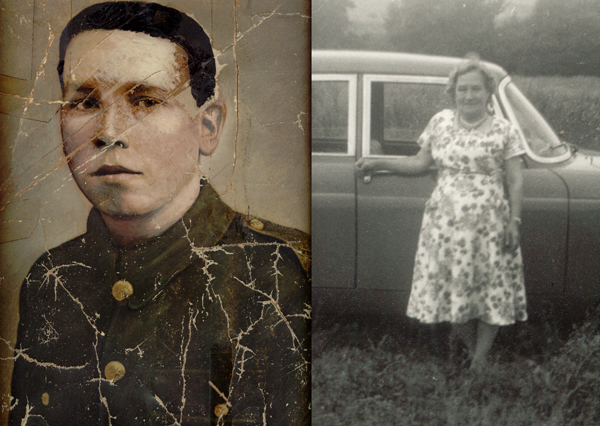 |
This is my maternal Grandfather Harry Bennett and his wife, my Grandmother Isabella Bennett (nee Dent). Harry was born on 15th June 1897 in Cross Street, Darlaston. Isabella was apparently born on 17th November 1897 in Wednesbury, although we have not yet been able to locate her birth certificate. Harry Bennett worked in one of the metal industries for which the Black Country was famous the world over. In 1921, when he married Isabella census information shows that he was working as an iron stamper. During the Great War Harry served as Private 17250 in the 7th Battalion Royal Lincolnshire Regiment. He was one of the fortunate few who survived that horrific conflict. After the war Harry returned home to Wednesbury. He and Isabella Isabella had met before the outbreak of war, but married on January 22nd 1921 at the register office in West Bromwich. During their lifetimes they raised a total of nine children together. Harry died on 28th December 1953 and was buried at Fallings Heath Cemetery, Wednesbury. Isabella lived on until October 16th 1974, she was buried with her husband. PRIVATE 17250 HARRY BENNETT OF DARLASTON AND THE BATTLE OF THE SOMME The 1st July 2016 marked the centenary of the Battle of the Somme. My maternal grandfather Henry (Harry) Bennett, from Darlaston took part in that terrible action, whilst serving as Private 17250 in the 7th Battalion of the Royal Lincolnshire Regiment. During the Great War like many others Harry enlisted and first served abroad shortly after January 1st 1916, at which time he was not even nineteen years of age. Within months of arriving in Europe he took part in some of the most savage and bloody fighting seen so far in the Great War, and was to go on to participate in some of the conflict’s most deadly battles. The following is a brief summary of the 7th Battalion’s involvement in the early days of the brutal Battle of the Somme. This brief narrative is a summary of information recorded in the battalion’s actual daily war diary, which still exists today. In the final days of June 1916 the 7th Battalion was on the move in northern France, men and equipment headed toward the frontline to take part in a major offensive they knew very well was coming. With a summer offensive highly likely, between the 13th and 24th of June the men went into training near to Allonville. On the 27th June, with training completed the 7th received Order 66 and travelled the 16km to Heilly on the same day. There they awaited what for many of the men was to be their ultimate fate. The next order they received took them 8km to Morlancourt on June 30th, the eve of the opening of the Somme offensive. There they awaited further orders, although they must have known the battle was imminent. We can only imagine how they felt as they waited. In the early morning of July 1st the Battle of the Somme commenced. Sometime before 8am the 7th marched to Becourt Wood via Meaulte and into the Fricourt frontline trenches where they relieved the 6th Dorsets. There they waited for their moment to come, and come it did as the attack went ahead all along the front line. The 7th received their orders at 8am, they were to attack Fricourt with the South Staffords. At 12.15pm the 7th advanced reaching their first objective, Fricourt Wood by 12.50pm where they took up positions. With the battle raging all along the front the 7th remained near Fricourt for the next two days. On July 3rd the battalion took a number of casualties due to enemy machine gun fire, but by 1.20pm they had captured the enemy trench known as Railway Alley and along with it no less than 1000 German prisoners. The next day they took another enemy position which was located just six yards in front of their own position, such was the closeness of the fighting on the Somme. July 5th saw the 7th reorganising and refitting. By this date, just four days into the battle their casualties included four officers and thirty-five other ranks killed. Another four officers and one hundred and fifty-three other ranks had been wounded. Reinforcements came in the days that followed, but the losses were of course destined to get worse. It wasn’t until the end of August 1916 that the 7th had any respite from the terrible fighting. As for Harry Bennett, he survived the mud and the blood of the Somme, when so many of his friends did not do so. He went on through the Great War to face the Battle of Arras in April 1917 and the awful fighting at Passchendaele between July and November 1917. He also served at the Battle of Amiens in the summer of 1918. Incredibly he survived it all and returned home to the Black Country at the end of the war. Harry and Isabella lived out the remainder of their lives together at 41 Moor Street, Mesty Croft, Wednesbury. |
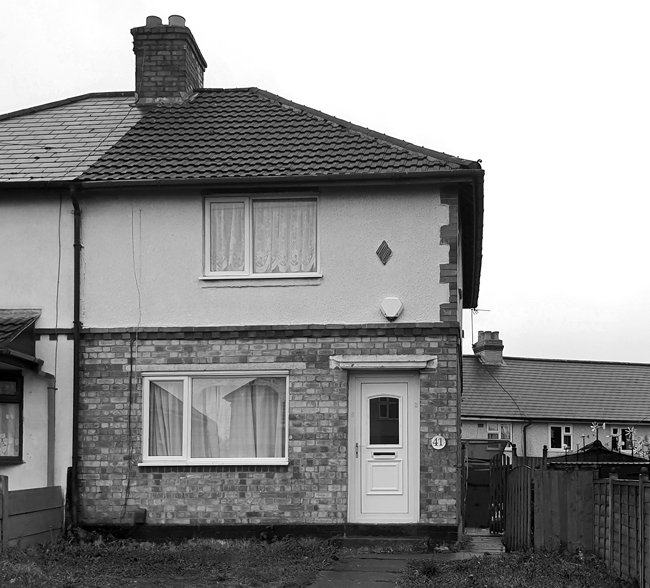
41 Moor Street, Mesty Croft, Wednesbury.
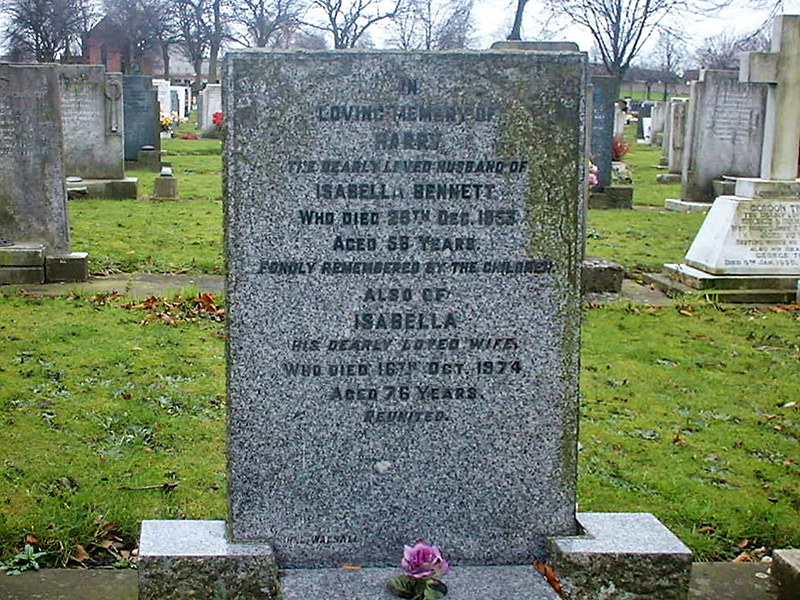
The grave of Harry and Isabella Benett, Fallings Heath Cemetery, Wednesbury.
This memorial no longer exists.
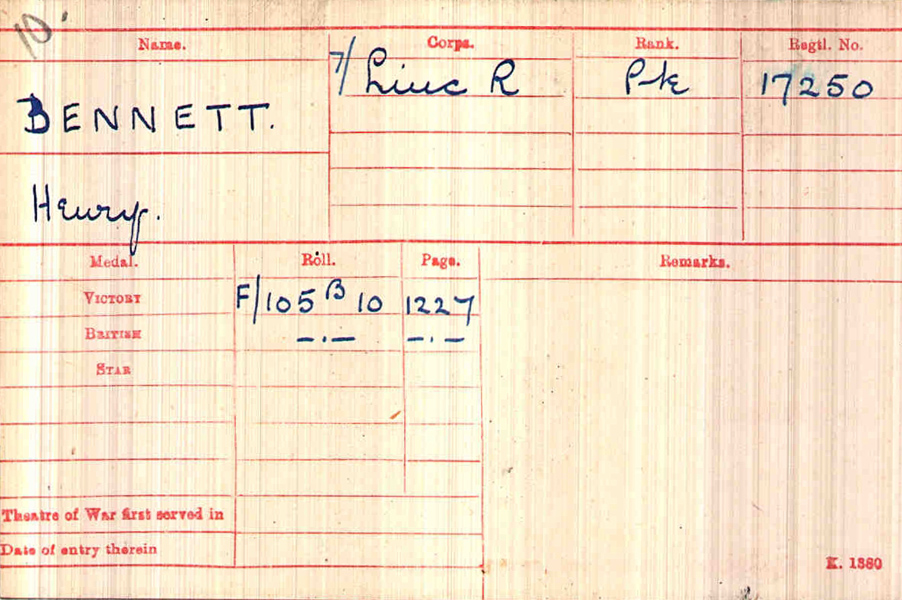
Private Harry Bennett's Great War medal card.
The image below is a military portrait of Harry Bennett, created shortly after the end of the Great War, when he was just twenty-one years of age. Portraits of this type were popular souvenirs with service men returning to civilian life following the conflict. The portrait itself now shows the effects of its one-hundred and three-year history, but it still exists. I understand that these images from the past were created by first photographing the subject themselves, and then re-touching with oils in order to create the look of a traditional oil on canvas portrait.
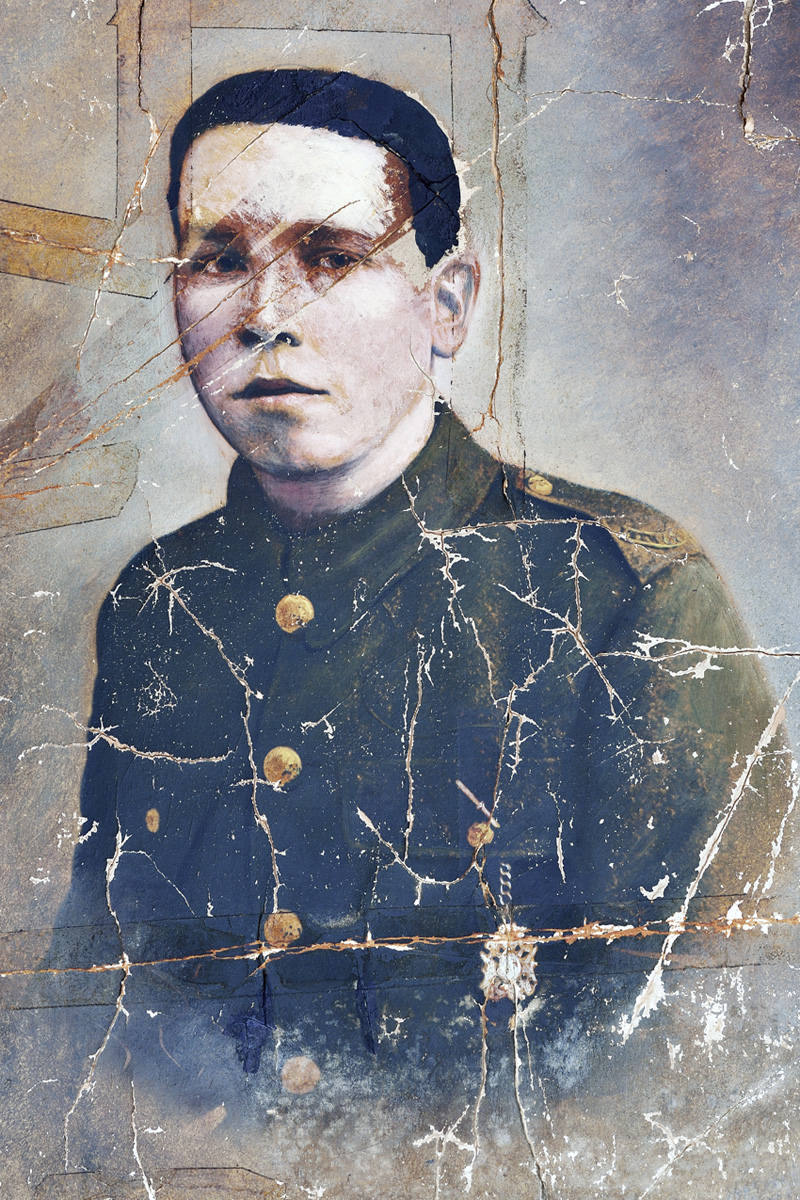
The image below shows Darlaston cenotaph on the evening of 11th November, 2023, Armistice Day and the eve of Remembrance Sunday. Harry Bennett's picture is inset, bottom right.
